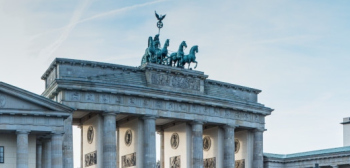- #130 QS Global World Ranking
- PublicStatus
- Very HighResearch Output
- 34,123Total Students
- 2,008Faculty
- 6,048Int'l Students
QS Global World Ranking
The University’s position in the current QS World University Rankings.
The University’s position in the current QS World University Rankings.
Status
Whether the University is funded by the government of that country or state, or funded by private donations.
Whether the University is funded by the government of that country or state, or funded by private donations.
Research Output
The research intensity of the University, based on the number of papers output relative to the University’s size.
The research intensity of the University, based on the number of papers output relative to the University’s size.
Total Students
The number of full time equivalent students enrolled at the University.
The number of full time equivalent students enrolled at the University.
Faculty
The number of full time equivalent teaching staff employed by the University.
The number of full time equivalent teaching staff employed by the University.
Int'l Students
The number of full time equivalent international students enrolled at the University.
The number of full time equivalent international students enrolled at the University.
Humboldt-Universität zu Berlin
About
Read more
Read less
The university was founded in Berlin in 1810, and the foundation concept of Wilhelm von Humboldt gave it the title "Mother of all modern universities".This concept envisaged a "Universitas litterarum" which would achieve a unity of teaching and research and provide students with an all-round humanist education. This concept spread throughout the world and gave rise to the foundation of many universities of the same type over the next century and a half.The concept of the academic and statesman Wilhelm von Humboldt was influenced, among others, by the reform ideas of the philosopher Johann Gottlieb Fichte, the first vice chancellor of the university, and by the theologian and philosopher Friedrich Schleiermacher.From the outset, the university in Berlin had the four classical faculties of Law, Medicine, Philosophy and Theology. Its first academic term began with 256 students and 52 teaching staff. Professors such as Georg Friedrich Wilhelm Hegel (Philosophy), Karl Friedrich von Savigny (Law), August Boeckh (Classical Philology), Christoph Wilhelm Hufeland (Medicine) and Albrecht Daniel Thaer (Agriculture), shaped the profile of the individual faculties in accordance with Humboldt's concept.Partly due to the influence of the natural scientist Alexander von Humboldt, the university pioneered the introduction of many new disciplines. The chemist August Wilhelm von Hofmann, the physicist Hermann von Helmholtz, the mathematicians Ernst Kummer, Leopold Kronecker, Karl Theodor Weierstrass (the "triple star of Mathematics") and the medical scientists Johannes Müller and Rudolf Virchow became known in their specialist areas far beyond the university in Berlin. Later, a total of 29 Nobel Prize winners did some of their scientific work at the university in Berlin, including Albert Einstein, Emil Fischer, Max Planck and Fritz Haber. And many famous people such as Heinrich Heine, Adelbert von Chamisso, Ludwig Feuerbach, Otto von Bismarck, Karl Liebknecht, Franz Mehring, Alice Salomon, Karl Marx and Kurt Tucholsky were also enrolled at the "Alma mater" of Berlin. Heinrich Mann was the first honorary doctor of the university after the end of the Second World War.
About
The university was founded in Berlin in 1810, and the foundation concept of Wilhelm von Humboldt gave it the title "Mother of all modern universities".This concept envisaged a "Universitas litterarum" which would achieve a unity of teaching and research and provide students with an all-round humanist education. This concept spread throughout the world and gave rise to the foundation of many universities of the same type over the next century and a half.The concept of the academic and statesman Wilhelm von Humboldt was influenced, among others, by the reform ideas of the philosopher Johann Gottlieb Fichte, the first vice chancellor of the university, and by the theologian and philosopher Friedrich Schleiermacher.From the outset, the university in Berlin had the four classical faculties of Law, Medicine, Philosophy and Theology. Its first academic term began with 256 students and 52 teaching staff. Professors such as Georg Friedrich Wilhelm Hegel (Philosophy), Karl Friedrich von Savigny (Law), August Boeckh (Classical Philology), Christoph Wilhelm Hufeland (Medicine) and Albrecht Daniel Thaer (Agriculture), shaped the profile of the individual faculties in accordance with Humboldt's concept.Partly due to the influence of the natural scientist Alexander von Humboldt, the university pioneered the introduction of many new disciplines. The chemist August Wilhelm von Hofmann, the physicist Hermann von Helmholtz, the mathematicians Ernst Kummer, Leopold Kronecker, Karl Theodor Weierstrass (the "triple star of Mathematics") and the medical scientists Johannes Müller and Rudolf Virchow became known in their specialist areas far beyond the university in Berlin. Later, a total of 29 Nobel Prize winners did some of their scientific work at the university in Berlin, including Albert Einstein, Emil Fischer, Max Planck and Fritz Haber. And many famous people such as Heinrich Heine, Adelbert von Chamisso, Ludwig Feuerbach, Otto von Bismarck, Karl Liebknecht, Franz Mehring, Alice Salomon, Karl Marx and Kurt Tucholsky were also enrolled at the "Alma mater" of Berlin. Heinrich Mann was the first honorary doctor of the university after the end of the Second World War.
University highlights
- 2012#130
- 2014#126
- 2015#134
- 2016#=126
- 2017#=121
- 2018#120
- 2019#121
- 2020#=120
- 2021#117
- 2022#=128
- 2023#=131
- 2024#120
- 2025#=126
- 2026#130
QS Stars is a rating system that helps you select the right university based on your
interests. It provides a detailed look at an institution, identifying which universities rate highest in
the
specific topics that matter to you, like facilities, graduate employability, social responsibility,
inclusiveness, and more.
Campus locations
Unter den Linden 6, Berlin, DE,
Unter den Linden 6 , Berlin , Germany , 10099
Similar Universities
Lancaster University Leipzig
The Post, Augustusplatz 1-4, Leipzig
Karlshochschule International University
Karlsstr. 36-38, Karlsruhe
Macromedia University of Applied Sciences
Mehringdamm 33, Berlin
SRH Berlin University of Applied Sciences
Ernst-Reuter-Platz 10, Berlin
Macromedia University of Applied Sciences
Macromedia University of Applied Sciences, Berlin
ESMT Berlin
Schlossplatz 1, Berlin
Related content

Top Anthropology Schools in…
By
Chloe
Lane
Updated
2.1k
0
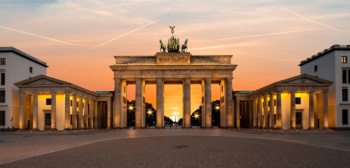
Berlin
By
QS Staff
Writer
Updated
4.6k
0
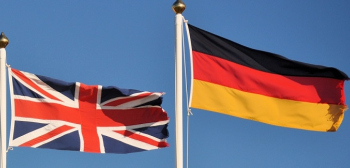
Study in Germany in English
By
Laura
T
Updated
2.7k
2

Top Universities in Germany…
By
Sabrina
Collier
Updated
767
0

Top Universities in Europe
By
Laura
T
Updated
1.8k
0

Top Universities for Theolog…
By
Belkis
Megraoui
Updated
983
0
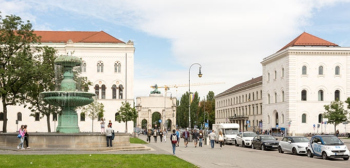
Top Universities in Germany…
By
Sabrina
Collier
Updated
778
0

Top Law Schools in 2019
By
Sabrina
Collier
Updated
1.3k
0

Top Universities for Psychol…
By
Belkis
Megraoui
Updated
2.7k
0
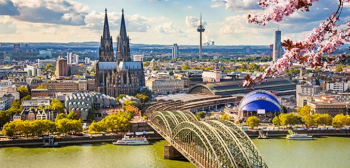
Top Universities in Germany…
By
Sabrina
Collier
Updated
473
0
Test preparations
Featured University


Sponsored
438
QS World University Rankings
-
10 UG & 47 PGTotal courses
-
Private for ProfitStatus
-
HighResearch output
Humboldt-Universität zu Berlin
basic
17
no
6048
XL
EN








